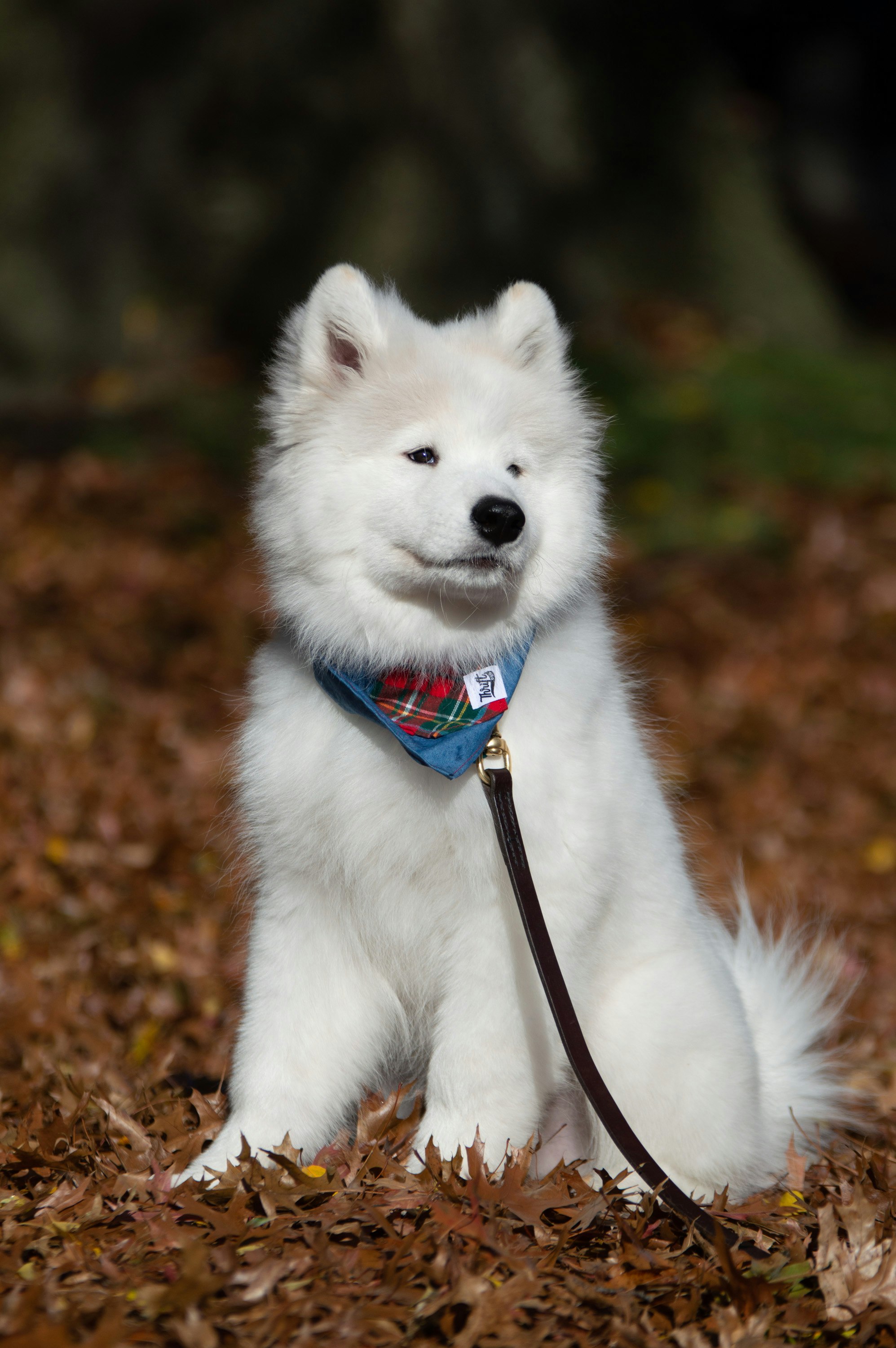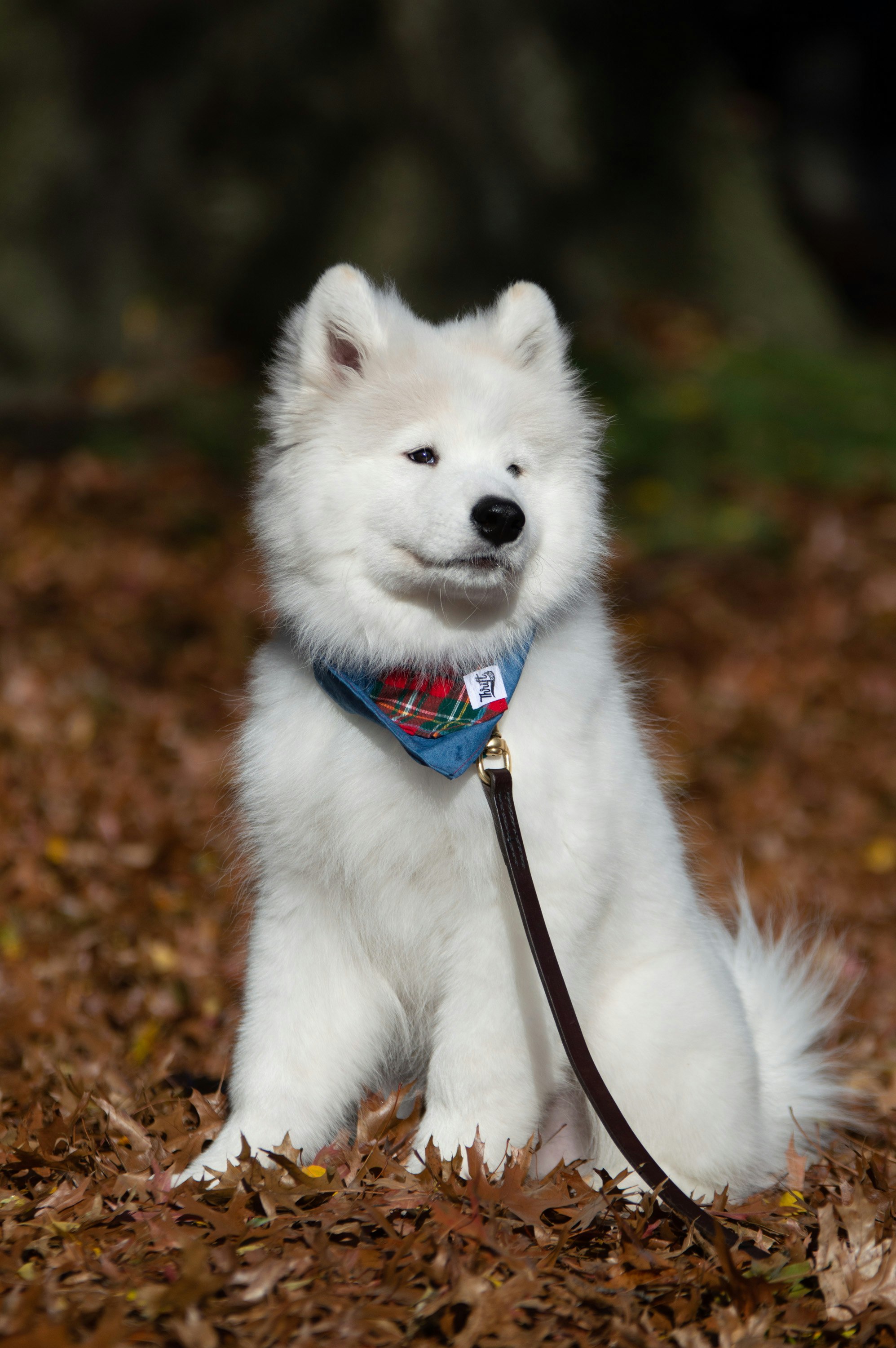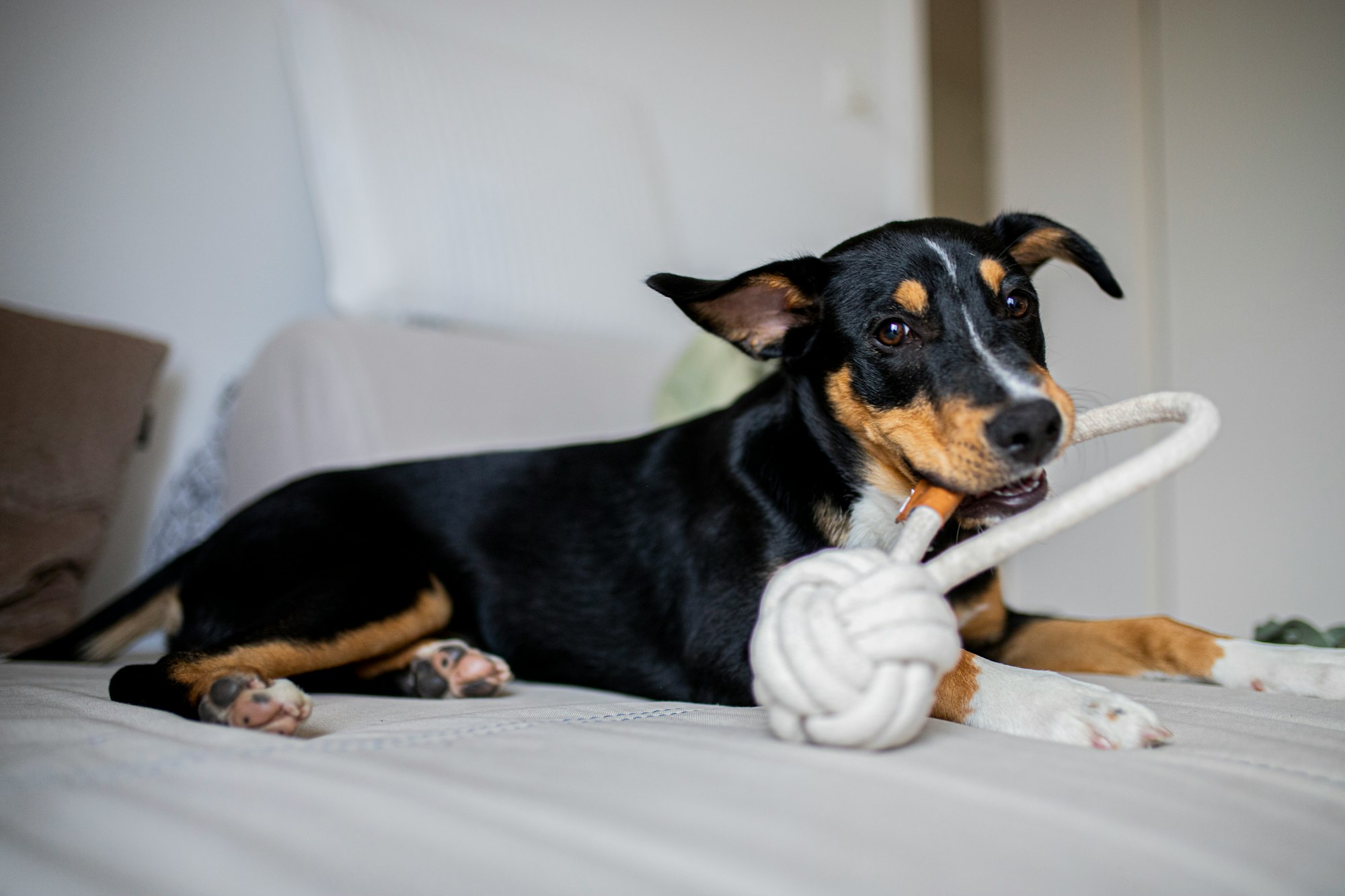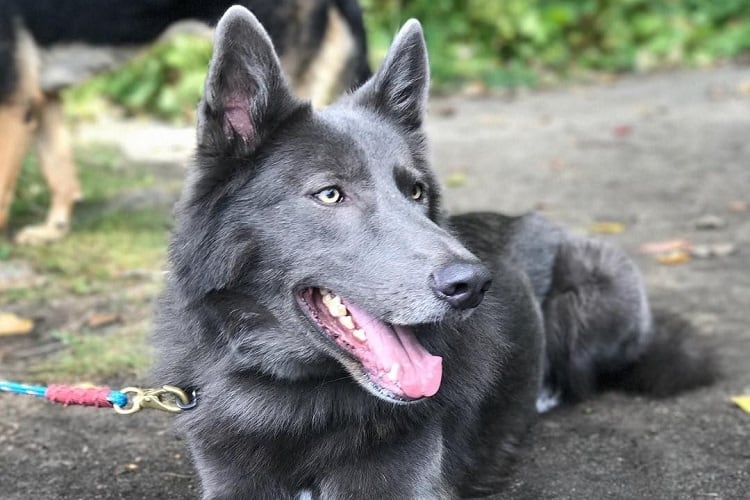If you're considering adding a furry bundle of joy to your life, look no further than Samoyed puppies. With their fluffy white coats and friendly personalities, Samoyed puppies are a popular choice for families and individuals alike. In this comprehensive guide, we'll walk you through the process of bringing home and caring for a Samoyed puppy, from selecting the perfect one to ensuring a happy and healthy life for your new canine friend.

Samoyed puppies are more than just adorable faces – they're known for their friendly nature and stunning appearance. Originating from Siberia, these dogs were bred as working companions and have evolved into affectionate family pets.
Choosing the Right Samoyed Puppy for You
Bringing a Samoyed puppy into your life is an exciting decision that comes with its share of responsibilities. These fluffy, friendly dogs make wonderful companions, but selecting the perfect puppy requires careful consideration. Here's a guide to help you choose the right Samoyed puppy that will fit seamlessly into your family and lifestyle.
1. Research the Breed: Start by researching the Samoyed breed to understand their characteristics, needs, and temperament. Samoyeds are known for their affectionate nature, high energy levels, and need for companionship. Ensure that these traits align with your preferences and lifestyle.

2. Reputable Breeder: Choosing a reputable breeder is crucial to ensure you're getting a healthy and well-cared-for puppy. Look for breeders who prioritize the welfare of their dogs, provide proper socialization, and conduct necessary health screenings.
3. Assess Temperament: Observe the puppies' behavior and interactions with each other and with people. A well-adjusted Samoyed puppy should be curious, friendly, and not overly aggressive or timid. Spend time with each puppy to get a sense of their individual personalities.
4. Health Check: Request health records and certificates from the breeder, including vaccinations, deworming, and any other relevant medical information. A healthy start is essential for a happy life with your new Samoyed.
5. Physical Examination: Conduct a physical examination of the puppy. Look for clear eyes, clean ears, and a clean coat. The puppy should have a healthy weight and be active and playful.
6. Interaction with Parents: If possible, interact with the puppy's parents. This can give you insights into the potential behavior and temperament your puppy may develop as it grows.
7. Ask Questions: Don't hesitate to ask the breeder questions about the puppy's history, care, and upbringing. A responsible breeder will be happy to provide you with all the information you need.
Preparing Your Home for Your New Arrival
Welcoming a Samoyed puppy into your home requires some preparation to ensure a smooth transition and a safe, comfortable environment for your new furry friend. Here's how you can prepare your home for your Samoyed's arrival.
1. Puppy-Proofing: Just like you would child-proof a home for a baby, puppy-proofing is essential. Remove any hazards such as toxic plants, small objects that could be swallowed, and electrical cords that could be chewed.
2. Create a Cozy Space: Set up a designated area for your puppy with a comfortable bed, water and food bowls, and some toys. This will give your Samoyed a sense of security and help with house training.
3. Stock Up on Supplies: Gather all the necessary supplies before your puppy arrives. This includes high-quality puppy food, treats, grooming tools, a leash and collar, and waste disposal bags.
4. House Training: Decide on a designated potty area and establish a consistent routine for bathroom breaks. Positive reinforcement and patience are key to successful house training.
5. Socialization: Plan ahead for socializing your Samoyed puppy. Expose them to various people, places, and situations to help them develop into a well-adjusted adult dog.
6. Training Plan: Research basic training techniques and decide on a training plan. Consistency and positive reinforcement will help your Samoyed learn commands and manners.

Feeding Your Samoyed Puppy: Diet and Nutrition
Proper nutrition is essential for your Samoyed puppy's growth, health, and overall well-being. Providing the right diet from the start will set the foundation for a happy and active life. Here's how to ensure your puppy gets the nutrition they need.
1. Consult Your Veterinarian: Consult your veterinarian to determine the best type of puppy food for your Samoyed. They can recommend a balanced diet that meets your puppy's specific nutritional requirements.
2. Choose High-Quality Food: Opt for high-quality, commercially available puppy dog food that is appropriate for your puppy's age, size, and activity level. Look for options with real meat as the primary ingredient.
3. Portion Control: Follow your veterinarian's guidelines for portion sizes and feeding frequency. Overfeeding can lead to obesity, while underfeeding may hinder proper growth.
4. Fresh Water: Always provide fresh and clean water for your Samoyed puppy. Proper hydration is essential for their overall health and well-being.
5. Monitor Growth: Keep an eye on your puppy's growth and weight gain. Adjust their portion sizes as needed to ensure they're growing at a healthy rate.
6. Avoid Harmful Foods: Certain foods, such as chocolate, grapes, and onions, can be toxic to dogs. Make sure to keep these and other harmful foods out of your puppy's reach.
Grooming 101: Keeping Your Samoyed's Coat Stunning

Grooming is an essential aspect of Samoyed puppy care, especially considering their luscious double coat that demands attention. Follow this stepwise guide to ensure your Samoyed's coat remains healthy, shiny, and free from tangles.
1. Brushing Routine: Begin with a regular brushing routine using a slicker brush or a rake comb. Brush through the outer and undercoat to prevent matting and remove loose fur. Aim for a brushing session at least 2-3 times a week.
2. Bath Time: Bathe your Samoyed puppy every 6-8 weeks or as needed. Use a gentle dog shampoo and ensure thorough rinsing. Be cautious not to over-bathe, as it can strip the coat of its natural oils.
3. Drying Techniques: After bathing, dry your puppy's coat thoroughly, especially the undercoat. Use a high-velocity dryer or a pet-friendly blow dryer on a cool setting to prevent matting and promote proper air circulation.
4. Nail Care: Trim your Samoyed's nails every 2-4 weeks, or as needed, to prevent overgrowth. Be cautious not to cut too close to the quick, as it can cause bleeding and discomfort.
5. Dental Health: Brush your puppy's teeth regularly to prevent dental issues. Use a dog-friendly toothbrush and toothpaste to maintain healthy gums and teeth.
6. Ear and Eye Care: Clean your Samoyed's ears and eyes gently using a damp cloth. Check for any signs of infection, redness, or discharge, and consult your veterinarian if necessary.
7. Professional Grooming: Schedule regular visits to a professional groomer for a thorough coat trim, especially during shedding seasons. A groomer can also provide a "Sanitary Trim" to keep the area around the anus and genitalia clean.
Training Strategies: Nurturing Your Puppy
Effective training lays the foundation for a well-behaved and well-adjusted Samoyed puppy. Employ these strategies to ensure your furry friend grows into a delightful and obedient companion.
1. Positive Reinforcement: Use positive reinforcement techniques, such as treats, praise, and toys, to reward desired behaviors. This method encourages your Samoyed to repeat the behaviors you want to reinforce.
2. Consistency is Key: Consistency in training is crucial. Use the same commands and cues every time, and ensure everyone in your household follows the same rules.
3. Basic Commands: Teach essential commands like "sit," "stay," "come," and "down" gradually. Start in a quiet and distraction-free environment, then progress to more challenging situations.

4. Socialization: Expose your Samoyed to various people, dogs, and environments from a young age. Proper socialization helps prevent behavioral issues and anxiety.
5. Crate Training: Introduce crate training to provide a safe and comfortable space for your puppy. Use positive associations and gradually increase crate time.
6. Leash Training: Teach loose leash walking to prevent pulling during walks. Use treats and praise to reward walking calmly by your side.
Healthcare Essentials: Ensuring a Healthy Life for Your Samoyed Puppy
Proper healthcare is paramount to ensure your Samoyed puppy's well-being and longevity. Follow these healthcare essentials to keep your furry companion in the best possible health.
1. Veterinary Visits: Schedule regular check-ups with a veterinarian to monitor your Samoyed's health, receive vaccinations, and address any concerns promptly.
2. Vaccination Schedule: Adhere to a recommended vaccination schedule to protect your puppy from common illnesses. Consult your vet to determine the appropriate vaccinations.
3. Parasite Prevention: Administer flea, tick, and heartworm prevention treatments as recommended by your veterinarian. Regular deworming is also essential.
4. Balanced Diet: Feed your Samoyed a balanced and high-quality diet to support their growth and overall health. Consult your veterinarian for dietary recommendations.
5. Exercise Routine: Engage your puppy in regular exercise to keep them physically fit and mentally stimulated. Activities like daily walks, playtime, and interactive games are essential.
6. Dental Care: Maintain your Samoyed's dental health by brushing their teeth regularly and providing dental chews or toys to reduce tartar buildup.
7. Spaying/Neutering: Discuss the appropriate time for spaying or neutering your Samoyed with your veterinarian. This procedure can help prevent certain health issues and unwanted behaviors.
Playful Companions: Exercise and Entertainment
Samoyed puppies are full of energy and thrive on exercise and play. Engaging in regular physical activity and providing ample entertainment opportunities are essential for a happy and healthy Samoyed. Here's how you can keep your furry friend active and entertained:
1. Daily Walks: Take your Samoyed for daily walks to explore the outdoors, experience different scents, and burn off excess energy.
2. Interactive Toys: Provide a variety of interactive dog toys that challenge your Samoyed's mind and encourage problem-solving.
3. Playdates: Arrange playdates with other friendly dogs to provide social interaction and a chance to engage in playful antics.
4. Agility Training: Engage in agility training to challenge your Samoyed's physical abilities and mental acuity.
5. Mental Stimulation: Use puzzle toys, treat-dispensing toys, and training sessions to keep your Samoyed mentally stimulated.

Building a Strong Bond: Socializing Your Samoyed
A strong bond between you and your Samoyed is built through trust, companionship, and positive experiences. Socializing your Samoyed from an early age lays the foundation for a well-adjusted and friendly companion. Here's how to foster a strong bond:
1. Puppy Socialization Classes: Enroll your Samoyed puppy in puppy socialization classes to expose them to new environments, people, and dogs.
2. Positive Experiences: Expose your Samoyed to various situations, such as car rides, different surfaces, and different sounds, in a positive and controlled manner.
3. Regular Handling: Gently handle your puppy's paws, ears, and mouth to accustom them to grooming and veterinary care.
4. Bonding Activities: Engage in activities that strengthen your bond, such as cuddling, playtime, and training sessions.
5. Be a Calm Leader: Establish yourself as a calm and confident leader, providing guidance and reassurance to your Samoyed.
Samoyed's Role in Your Life: Family Pet and More
Samoyeds quickly become beloved members of the family, bringing joy, companionship, and unconditional love. Beyond being a family pet, Samoyeds can take on various roles in your life:
1. Playful Companion: Samoyeds are playful and affectionate, making them wonderful companions for children and adults alike.
2. Exercise Buddy: Your Samoyed can be your perfect exercise partner, whether it's jogging, hiking, or playing fetch.
3. Emotional Support: Samoyeds are known for their empathetic nature and can provide emotional support during challenging times.
4. Therapy Dog: With their gentle demeanor, some Samoyeds excel as therapy dogs, bringing comfort to those in need.
5. Adventure Partner: Samoyeds love outdoor adventures, making them ideal companions for camping trips, beach outings, and more.
On the Go: Traveling with Your Samoyed
Samoyeds love exploring new places just as much as you do. Traveling with your furry friend can be a rewarding experience, but it requires planning and preparation. Here's how to make traveling with your Samoyed a breeze:
1. Safety First: Use a sturdy crate or a seatbelt harness to secure your Samoyed in the car for safe travel.
2. Familiar Comforts: Bring along familiar items, such as their bed, toys, and food, to provide comfort in unfamiliar environments.
3. Regular Breaks: Plan frequent stops for bathroom breaks, exercise, and water during long journeys.
4. Pet-Friendly Accommodations: Choose accommodations that welcome pets, whether it's a pet-friendly hotel or a vacation rental.
5. Explore Together: Research pet-friendly activities and attractions at your destination to ensure your Samoyed is included in the fun.
Addressing Challenges: Common Samoyed Issues
While Samoyeds are delightful companions, they can face certain challenges that require attention and training. Here's how to address common Samoyed issues:

1. Excessive Barking: Train your Samoyed to respond to commands like "quiet" and address the underlying causes of excessive barking.
- Separation Anxiety: Gradually acclimate your Samoyed to being alone and provide them with engaging toys and activities when you're away.
3. Shedding: Regular grooming and brushing will help manage shedding, especially during shedding seasons.
4. Digging: Provide alternative digging areas in your yard and redirect your Samoyed's digging instincts.
5. Socialization Challenges: Continuously expose your Samoyed to different people, places, and dogs to improve socialization skills.
Conclusion: A Lifetime of Love with Your Samoyed
Bringing a Samoyed puppy into your life is the start of a wonderful journey filled with joy and companionship. With proper care and attention, you'll enjoy a loving relationship with your Samoyed for years to come.
FAQs
Q1: How often should I groom my Samoyed puppy?
Regular grooming, including brushing, should be done at least 2-3 times a week to prevent matting and maintain their coat's health.
Q2: Are Samoyeds suitable for apartment living?
While Samoyeds are energetic, they can adapt to apartment living as long as they receive sufficient exercise and mental stimulation.
Q3: Do Samoyeds get along with other pets?
Yes, Samoyeds are generally sociable and can get along well with other pets, especially when properly socialized from a young age.
Q4: Are Samoyeds prone to any health issues?
Samoyeds can be prone to hip dysplasia and certain eye conditions. Regular veterinary care and a healthy lifestyle can help minimize these risks.
Q5: What is the typical energy level of a Samoyed puppy?
Samoyed puppies are known for their high energy levels and playfulness. They require regular exercise and mental engagement to thrive.






